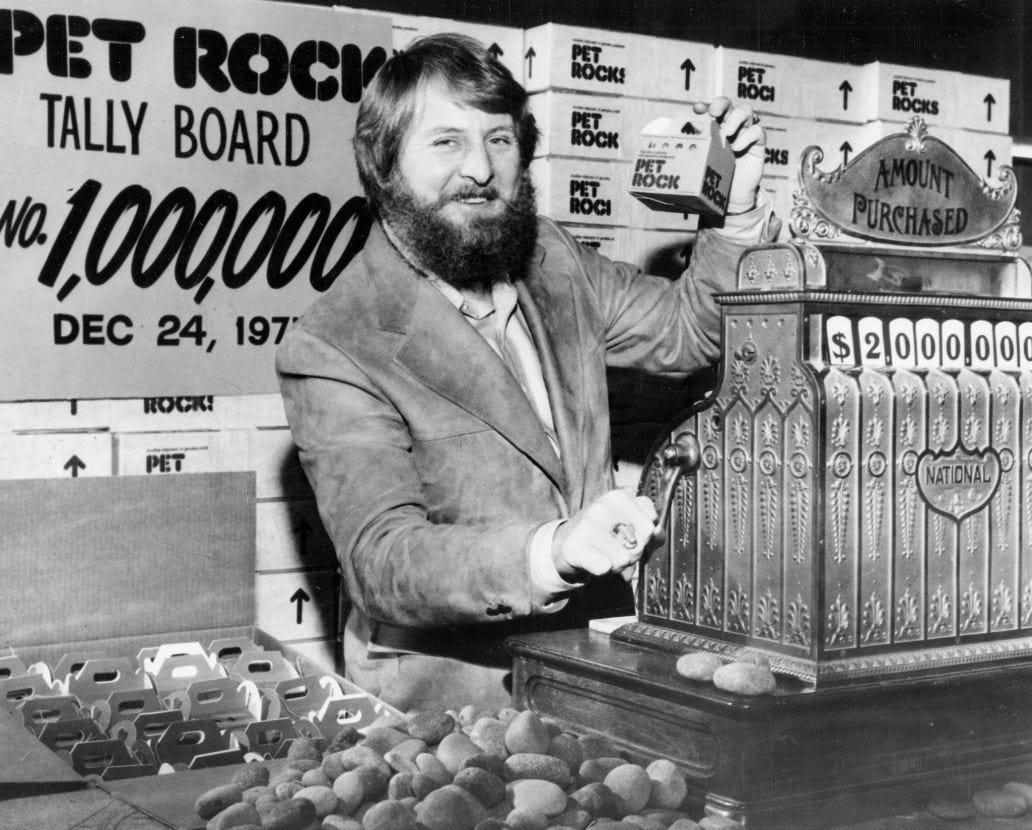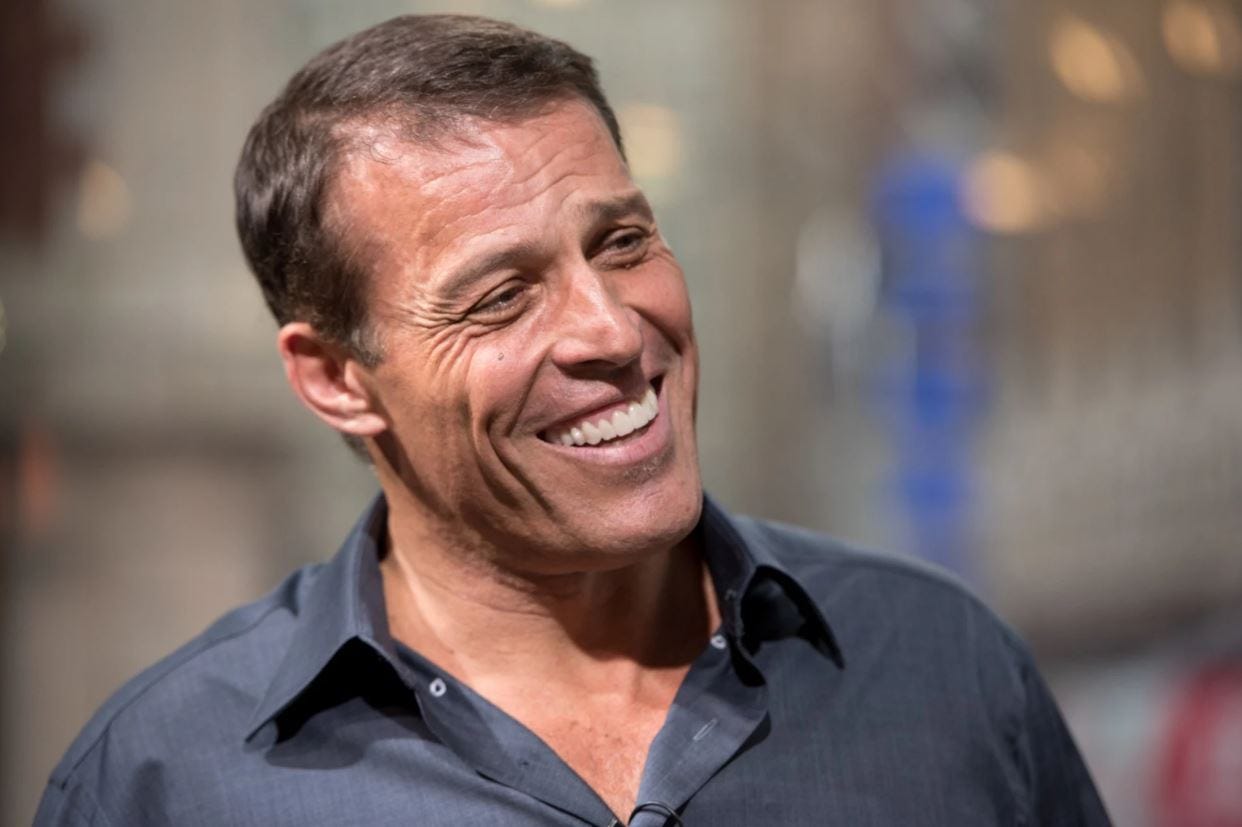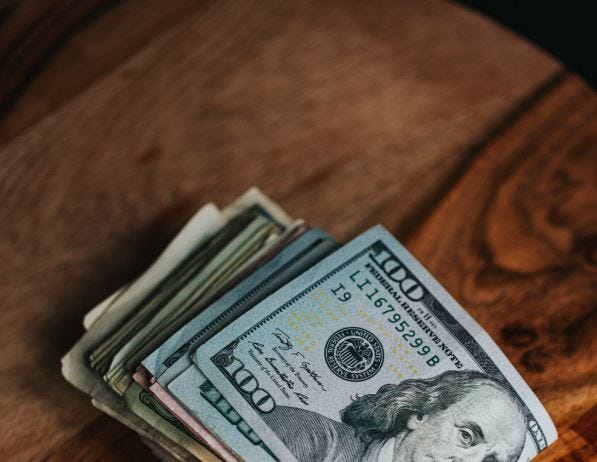You Have More to Monetize Than You Think
Monetization = turning something - tangible or intangible - into money.
Think you’ve got nothing in your life to monetize? Think again.
The Miracle of the Pet Rock
Picture this: It’s 1975. America is deep in post-Vietnam, mid-recession blues. Gas prices are up. Inflation is squeezing wallets. People need a laugh, a distraction - something ridiculous to lighten the mood.
Enter Gary Dahl, a California ad executive sitting in a bar, listening to friends complain about their pets. The feeding. The grooming. The vet bills.
And then - a joke.
"You know what would be the perfect pet? A rock. No feeding, no walking, no mess."
Everyone laughs. But while they’re laughing, Gary isn’t.
Because Gary sees something.
An idea. An opportunity. A way to turn pure absurdity into cold, hard cash.

A Rock in a Box. That’s It.
Within months, Dahl is buying smooth Mexican beach stones for a penny apiece. He sticks them in a custom-made cardboard box, complete with air holes (because obviously, a pet needs air).
Inside the box? A tiny bed of straw - so the rock has a “comfortable” home.
But the real genius?
The Pet Rock Training Manual.
This tongue-in-cheek booklet walks owners through the joys of rock ownership. It teaches essential commands like:
"Sit" (easy)
"Stay" (even easier)
"Roll over" (just give it a nudge)
It’s stupid. It’s hilarious. And it’s about to take over the world.
A Media Frenzy That Money Couldn’t Buy
Dahl debuts the Pet Rock just before Christmas 1975. And something insane happens.
The media goes nuts.
The Washington Post. Newsweek. Time Magazine. The Tonight Show. Everyone is talking about this ridiculous “pet” taking America by storm.
At the height of the craze, Dahl is selling 100,000 Pet Rocks per day.
By the time the trend dies out, he’s sold 1.5 million of them at $3.95 each.
That’s $6 million in revenue (over $30 million in today’s money), all from a joke.
The Lesson? Ideas Are the Real Currency.
Dahl didn’t invent rocks. He didn’t even package special rocks.
He packaged an idea. A feeling. A cultural moment.
And people paid for it. Eagerly.
The Pet Rock wasn’t just a toy - it was a marketing phenomenon. Proof that monetization isn’t about what you sell, but how you position it.
And if someone can make millions from selling a rock, what are you sitting on that you’ve never thought to monetize?

Ever Heard of Tony Robbins?
He doesn’t sell physical products.
He sells energy, motivation, and belief.
He took his voice and ideas, packaged them into books, tapes, seminars, and coaching programs, and built a billion-dollar empire.
People aren’t paying for information. They’re paying for transformation.
And now, let’s get personal.
Proof That Monetizing Your Skills Works: My $20,000 Writing Deal
Back in 2012, I decided to supplement my advertising and marketing skills by sharpening my writing abilities. I invested in an expensive course and did a deep dive into learning copywriting.
My first paying gig? $35. The client was late paying, and honestly, the copy was terrible.
My second client? Just under $1,000. This time, I asked for payment upfront and got it. Always have ever since. The copy was better too, but I was still figuring things out.
Then came my third client. Within months, I landed a $20,000 contract ghostwriting for a publisher who ran two newsletters - one in self-development (100,000 subscribers) and another for writers (40,000 subscribers).
But what was I really monetizing? My writing skills?
Or did I really monetize my courage, confidence, and willingness to put myself out there?
Not because I was the best writer.
Not because I had years of experience.
But because I knew how to package my skills as valuable.
This wasn’t just about writing words - it was about monetizing knowledge.
I understood what the client needed.
I positioned myself as the right person to help.
I asked for real money - and got it.
That’s the lesson.
People don’t pay for what you do - they pay for what your skills can do for them.
I wasn’t the best writer or copywriter in the world. But I knew enough to get paid.
And that’s the whole point.
Monetizing Your Writing
If you’re ready to turn your words into wads of cash (and why not?), you don’t need to grind your teeth wondering how to do it.
Writing isn’t just a craft - it’s a skill that businesses, publishers, and audiences will pay for. The key? Packaging and positioning your words for profit.
Join Maryan Pelland, co-founder of the Inkspired Community, and 3,000+ subscribers at her Substack publication, Pen2Profit - where she shares real-world strategies to turn your writing into a steady income stream.
Maryan shares proven, successful, and realistic ways to monetize your writing - backed by actual experience.
Because words aren’t just words. They’re assets. And Maryan shows you how to cash in.

The Podiatrist Who Made $30K in One Month on YouTube
Now, this one will blow your mind.
My friend Maggie McCormack - a podiatrist - started her YouTube channel last year (mid-2024). But here’s the twist: she didn’t talk about feet.
Instead, she talked about her passion - spirituality and personal growth.
At first, it was just a creative outlet. A way to share what she loved.
But then… something incredible happened.
In early January 2025, one 12-minute video she uploaded went viral.
4.5 million views.
Here’s the video that changed everything for Maggie. Watch and see why it took off.
Her subscriber count exploded - from 3,500 to 150,000 because of that one video.
Then it gets even crazier.
Within six months of launching, she hit YouTube monetization.
And her first paycheck? $30,000.
Are you thinking OMG? Me too. Big time.
Luck? No way.
This wasn’t some random accident. It was planned monetization.
She consistently put out content positioned for growth. She had monetization enabled, knew how to structure a video for engagement, and played the long game.
So when that viral moment hit?
She was ready to capitalize on it.
She took what she already knew and loved, put it online, and the market rewarded her.
That’s monetization in action.
Your Turn: What’s Already in Your Hands?
What do people always ask you for advice about?
What’s something you’ve mastered - big or small?
What topic could you talk about for hours?
That’s your starting point.
Until next time,
Mike Searles
MENTOR MIKE
About our author: Mike Searles (Mentor Mike) is a member of the Inkspired Community. He helps writers, professionals, and retirees turn life experience and hard-won wisdom into extra income by transforming knowledge into high-value products and services that educate, inspire, and create real impact.
It’s such a treat to get unique points-of-view from our guest writers. If you have a story idea for the Inkspired Community newsletter, direct message Maryan Pelland





As usual, fun and illuminating. Nice job and thanks for the thought-provoking ideas!
Thank you, Elizabeth. In that case - my purpose for writing it has been fulfilled.